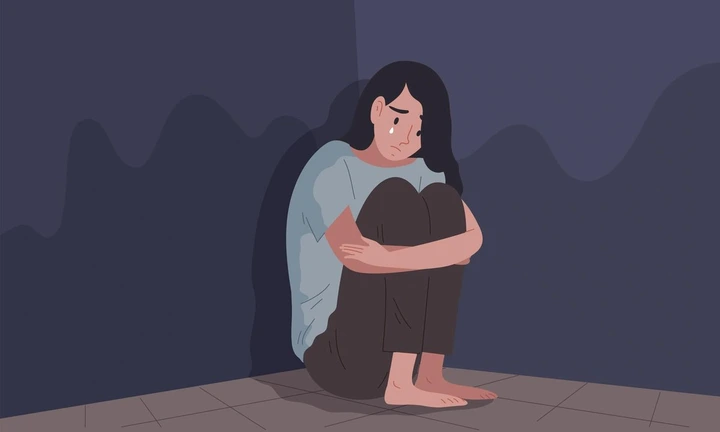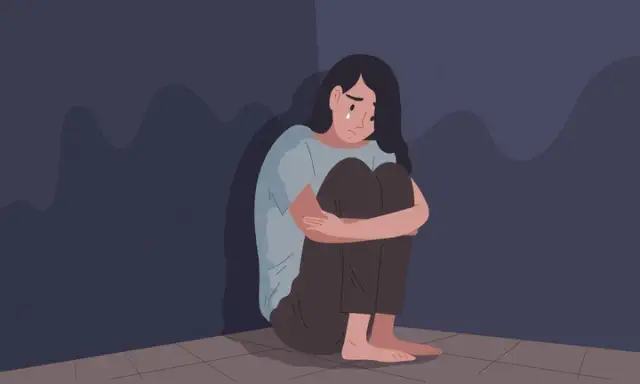
View pictures in App save up to 80% data.
Identifying the symptoms is essential for obtaining assistance. Below are several typical indicators of a Major Depressive Episode (MDE).
-
Persistent sadness or emptiness. This feeling is constant and overwhelming.
-
Loss of interest in activities. Hobbies and social interactions no longer bring joy.
-
Significant weight changes. Either weight loss or gain can occur without trying.
-
Sleep disturbances. Insomnia or excessive sleeping are common.
-
Fatigue or loss of energy. Simple tasks can feel exhausting.
-
Feelings of worthlessness or guilt. These feelings are often disproportionate to the situation.
-
Difficulty concentrating. Making decisions or focusing on tasks becomes hard.
-
Thoughts of death or suicide. These thoughts may be frequent and intense.
Factors and Risk Elements
Gaining insight into the factors that lead to Major Depressive Episodes (MDE) can aid in both prevention and therapeutic approaches.
-
Genetics play a role. Family history of depression increases the risk.
-
Brain chemistry is involved. Imbalances in neurotransmitters can contribute to depression.
-
Hormonal changes can trigger it. Events like pregnancy or thyroid problems can affect mood.
-
Life events are significant. Trauma, loss, and stress can lead to an MDE.
-
Chronic illness increases risk. Conditions like diabetes or heart disease are linked to higher depression rates.
-
Substance abuse is a factor. Alcohol and drug use can both cause and result from depression.
Available Treatment Alternatives
There are multiple approaches to managing and treating major depressive episodes.
-
Medication is common. Antidepressants can help balance brain chemicals.
-
Therapy is effective. Cognitive-behavioral therapy (CBT) and other forms of counseling can provide relief.
-
Lifestyle changes matter. Regular exercise, a healthy diet, and adequate sleep can improve symptoms.
-
Support groups help. Sharing experiences with others can provide comfort and advice.
-
Mindfulness and meditation. These practices can reduce stress and improve mood.
-
Electroconvulsive therapy (ECT). For severe cases, ECT can be a viable option.
Effects on Everyday Living
A Major Depressive Episode (MDE) can greatly interfere with daily tasks and obligations.
-
Work performance suffers. Concentration issues and fatigue can affect job performance.
-
Relationships are strained. Depression can lead to withdrawal from loved ones.
-
Daily tasks become difficult. Even simple chores can feel overwhelming.
-
Financial problems may arise. Medical costs and reduced work capacity can lead to financial strain.
-
Quality of life decreases. Overall enjoyment and satisfaction with life diminish.
Concluding Reflections on Major Depressive Episodes
Major depressive episodes impact millions, yet understanding them can lead to better support and treatment. Recognizing symptoms like persistent sadness, loss of interest, and changes in sleep or appetite is crucial. Early intervention and professional help make a significant difference. Therapies like cognitive-behavioral therapy (CBT) and medications provide effective treatment options. Support systems—friends, family, and support groups—play a vital role in recovery. Self-care practices, including exercise, healthy eating, and mindfulness, also contribute to managing depression. Awareness and education reduce stigma, encouraging more people to seek help. Remember, depression is a medical condition, not a personal failing. If you or someone you know is struggling, don’t hesitate to reach out for professional assistance. Understanding and compassion can pave the way for healing and hope.
Commonly Asked Questions
What precisely constitutes a major depressive episode?
In basic terms, it's a time when a person experiences persistent sadness for the majority of the day, almost every day, lasting for a minimum of two weeks. They may find that activities they once liked no longer bring them joy, feel constantly fatigued, or have difficulty focusing.
How prevalent are major depressive episodes?
It's more prevalent than you might think! Research indicates that approximately 1 in 6 individuals will encounter one at some stage in their lives. This means that someone in your circle could be facing this challenge at this very moment.
Yes, kids and teenagers can experience a major depressive episode. Just like adults, they can face significant emotional challenges and mental health issues, including depression. Symptoms may manifest differently in younger individuals, often including changes in mood, behavior, and academic performance. It's important for parents and caregivers to recognize these signs and seek professional help when necessary.
Certainly. Although we commonly associate depression with adults, children and teenagers can also face this challenge. Their symptoms may manifest differently, such as increased irritability or fluctuations in weight and sleep patterns.
What triggers these episodes?
It's a combination of various factors. Genetics can influence your likelihood of experiencing depression, especially if there is a family history of it. Additionally, stressful life situations, specific medications, and underlying health issues may also provoke an episode.
Are there effective treatments available?
Absolutely, there are numerous options available. Medications such as antidepressants can prove beneficial for many individuals. Additionally, therapy, particularly cognitive-behavioral therapy, has been instrumental for a lot of people. Often, the most effective strategy is to use a combination of both treatments.
What are some ways I can support someone experiencing a significant depressive episode?
Being an attentive listener is crucial. Provide your assistance, motivate them to express their emotions, and recommend seeking guidance from a professional. Sometimes, simply being present can have a significant impact.
Is it possible to prevent major depressive episodes?
Although it's impossible to eliminate every instance, implementing specific strategies can help lower the risk. Engaging in regular physical activity, nurturing strong social relationships, and effectively managing stress are all advantageous. For individuals with a history of depression, continuous treatment may help avert future occurrences.
Did you find this page useful?
Our commitment to delivering trustworthy and engaging content is at the heart of what we do. Each fact on our site is contributed by real users like you, bringing a wealth of diverse insights and information. To ensure the highest standards of accuracy and reliability, our dedicated editors meticulously review each submission. This process guarantees that the facts we share are not only fascinating but also credible. Trust in our commitment to quality and authenticity as you explore and learn with us.










